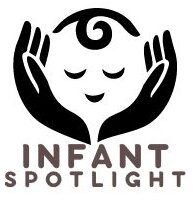Having a congested or stuffy nose can be quite distressing for your little one, and as a parent, it’s natural to wonder what steps you should take to help ease their discomfort. In this article, we will explore some practical and gentle remedies that you can try to provide relief to your congested baby. From using saline drops to elevating their position while sleeping, we’ve got you covered with helpful tips and tricks to soothe your baby’s stuffy nose and ensure a better night’s sleep for both of you.

Medical Causes of Congestion and Stuffiness
Common Cold
The common cold is one of the most frequent culprits behind congestion and stuffiness in babies. It is caused by a viral infection and often presents with symptoms such as a runny or stuffy nose, coughing, and sneezing. While there is no cure for the common cold, symptoms can be managed to provide relief for your little one.
Sinusitis
Sinusitis occurs when the sinuses become inflamed and infected. This can cause the baby’s nasal passages to become congested and stuffy. Other symptoms may include facial pain, headache, and fever. Sinusitis in infants is usually caused by a bacterial infection and requires medical attention for proper diagnosis and treatment.
Allergies
Allergies can also be a reason for congestion and stuffiness in babies. Allergens like dust mites, pet dander, pollen, or certain foods can trigger an allergic reaction, leading to nasal congestion, sneezing, and itching. Identifying and avoiding the allergen is key to managing allergy-related congestion in babies.
Respiratory Infections
Respiratory infections, such as bronchiolitis or pneumonia, can cause severe congestion and stuffiness in infants. These infections are usually caused by viruses or bacteria and require medical intervention for proper diagnosis and treatment. Identifying the specific respiratory infection is crucial to effectively manage the congestion and promote your baby’s recovery.
Non-Medical Causes of Congestion and Stuffiness
Dry Air
Dry air in the environment can cause the baby’s nasal passages to dry out and become congested. This can be particularly common during the winter months when indoor heating systems are used. Using a humidifier or placing a bowl of water near a heat source can help add moisture to the air and alleviate congestion.
Irritants
Exposure to irritants such as strong perfumes, smoke, chemicals, or pollution can lead to congestion and stuffiness in babies. It’s important to keep the baby’s environment clean and free from these irritants. Avoiding smoking near the baby and using fragrance-free products can help minimize irritation and congestion.
Teething
Teething can sometimes be associated with congestion and stuffiness in babies. The increase in saliva production during teething can cause a runny nose, which may lead to congestion. While teething-related congestion is usually temporary, providing comfort measures and gentle nasal care can help relieve symptoms.
Symptoms of Congestion and Stuffiness
Difficulty breathing
Congestion and stuffiness can make it difficult for babies to breathe properly. They may have to work harder to get sufficient oxygen, which can cause faster and shallower breathing. If you notice any signs of difficulty breathing, such as flaring nostrils or chest retractions, it’s important to seek medical attention immediately.
Nasal discharge
Excessive nasal discharge is a common symptom of congestion and stuffiness in babies. The discharge can be clear, yellow, or green in color, depending on the underlying cause. Cleaning the baby’s nose gently with saline drops or a bulb syringe can help clear the nasal passages and provide relief.
Coughing or sneezing
Babies with congestion and stuffiness may also experience frequent coughing or sneezing. These are the body’s natural mechanisms to clear the airways and remove irritants. However, if the cough or sneezing persists or becomes severe, it’s essential to consult a healthcare professional.
Fussiness or irritability
Congestion and stuffiness can cause discomfort and make babies fussy or irritable. They may have difficulty sleeping or eating due to the nasal congestion. Providing comfort measures, such as using a humidifier or elevating the head of the crib, can help alleviate the discomfort and promote better sleep.
Poor appetite
Babies with congestion and stuffiness may experience a decrease in appetite. Difficulty breathing through the nose can make it challenging for them to breastfeed or bottle-feed. Offering smaller, more frequent feeds and ensuring that the baby is in an upright position can help improve feeding intake.
Home Remedies for Congestion and Stuffiness
Using a humidifier
Using a humidifier in the baby’s room can help add moisture to the air and prevent the nasal passages from drying out. This can provide relief from congestion and promote easier breathing. It is important to clean the humidifier regularly to prevent the growth of mold or bacteria.
Saline nasal drops
Saline nasal drops can help loosen mucus and clear the nasal passages in babies. You can use a dropper or spray bottle to administer the drops. After applying the drops, gently suction out the loosened mucus using a bulb syringe or nasal aspirator. This can provide instant relief and improve breathing.
Elevating the head of the crib
Elevating the head of the crib slightly can help reduce nasal congestion by promoting drainage of mucus. Place a small pillow or rolled-up towel under the mattress to achieve a slight incline. This position can help prevent excessive mucus buildup and provide relief for your baby.
Steam shower or bath
Steam can help loosen mucus and relieve congestion. You can create a steamy environment by taking your baby into the bathroom while running a hot shower. Alternatively, a warm bath can also help alleviate congestion and provide soothing comfort for your little one.
Using a bulb syringe or nasal aspirator
A bulb syringe or nasal aspirator can be used to remove excess mucus from your baby’s nasal passages. Gently squeeze the bulb, then insert the tip into the nostril and release the bulb to suction out the mucus. This can help clear the airways and provide immediate relief from congestion.

Over-the-Counter Medications
Decongestants
Decongestants are commonly used to relieve nasal congestion. However, it’s important to note that decongestants are generally not recommended for babies, especially those under the age of two. Always consult with a healthcare professional before considering any over-the-counter medications for your baby.
Nasal sprays
Nasal sprays containing saline or saline-diluted solutions can help moisturize the nasal passages and alleviate congestion. These sprays are usually safe for babies and can be used up to several times a day. Make sure to follow the instructions provided or consult a healthcare professional for proper usage.
Expectorants
Expectorants can help thin and loosen mucus in the airways, making it easier for babies to cough up and clear the mucus. However, similar to decongestants, expectorants are generally not recommended for babies. Always consult with a healthcare professional before giving any over-the-counter medications to your baby.
When to Seek Medical Attention
Persistent symptoms
If your baby’s congestion and stuffiness persist for more than a few days or worsen over time, it is advisable to seek medical attention. Persistent symptoms may indicate an underlying condition that requires proper diagnosis and treatment.
High fever
If your baby develops a high fever (generally above 100.4°F or 38°C), it is important to contact a healthcare professional. A fever may signal a more serious infection or illness that requires medical evaluation and appropriate treatment.
Worsening condition
If your baby’s congestion and stuffiness worsen, or if they develop additional symptoms such as difficulty breathing, wheezing, or a rapid heartbeat, it is crucial to seek immediate medical attention. These signs may indicate a severe respiratory infection or another serious condition.
Difficulty breathing
If your baby is experiencing severe difficulty breathing, such as gasping for breath, rapid breathing, or choking, it is an emergency situation. Call emergency services right away and follow their instructions while waiting for help to arrive.

Preventing Congestion and Stuffiness
Regular handwashing
Regular handwashing is essential to prevent the spread of infections that can lead to congestion and stuffiness in babies. Make sure to wash your hands before handling the baby or preparing their meals. Encourage other caregivers and siblings to practice proper hand hygiene as well.
Keeping the environment clean
Keeping the baby’s environment clean can help minimize exposure to irritants and allergens. Regularly dust and vacuum the house, keep pets away from the baby’s sleeping area, and avoid using strong chemicals or fragrances that can irritate the baby’s nasal passages.
Avoiding smoke and pollutants
Exposure to smoke and pollutants can worsen congestion and pose significant health risks for babies. Avoid smoking in the presence of the baby, and keep them away from areas with high levels of air pollution or secondhand smoke.
Breastfeeding
Breastfeeding provides numerous benefits for infants, including a reduced risk of respiratory infections. The antibodies in breast milk help boost the baby’s immune system and protect them from various illnesses, thus potentially reducing the frequency of congestion and stuffiness.
Alternative Remedies
Breast milk
Breast milk is often hailed for its numerous health benefits, and it can also be used to relieve congestion and stuffiness in babies. A few drops of expressed breast milk can be administered into the baby’s nostrils to help loosen mucus and provide relief. However, it’s important to note that this remedy may not work for all babies, and it’s always best to consult with a healthcare professional before trying alternative remedies.
Saline drops with essential oils
Some parents find that adding a few drops of essential oils, such as eucalyptus or lavender, to saline drops can provide additional relief for congestion and stuffiness. However, it’s crucial to exercise caution when using essential oils on babies. Always consult with a healthcare professional and follow proper dilution guidelines to ensure the safety and effectiveness of this remedy.
Maintaining Comfort
Using soft tissues
Choose soft and gentle tissues or wipes to wipe your baby’s nose when they have congestion and stuffiness. Rough tissues can further irritate the sensitive skin around the nose, causing discomfort and redness.
Keeping the baby hydrated
Proper hydration is important to help thin out mucus and prevent dehydration. Offer frequent breastfeeding or bottle-feeding to keep your baby hydrated. If your baby is older and eating solid foods, provide plenty of fluids, such as water, to ensure adequate hydration.
Providing comfort and soothing
Babies with congestion and stuffiness may be fussy or irritable. Providing comfort measures, such as cuddling, rocking, or singing lullabies, can help soothe your baby and provide relief from discomfort. Creating a calm and relaxing environment can also promote better sleep, which is crucial for their overall well-being.
Conclusion
Congestion and stuffiness in babies can be caused by various medical and non-medical factors. Understanding the underlying causes and recognizing the accompanying symptoms is key to providing effective relief. While home remedies and alternative therapies can offer temporary relief, it’s important to seek medical attention for persistent or worsening symptoms. By following preventive measures and maintaining your baby’s comfort, you can help alleviate congestion and stuffiness, promoting their overall health and well-being.
